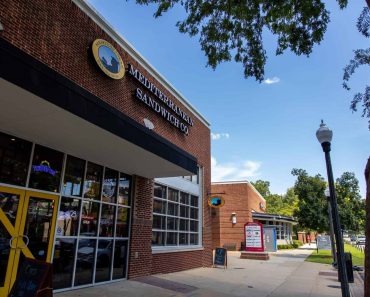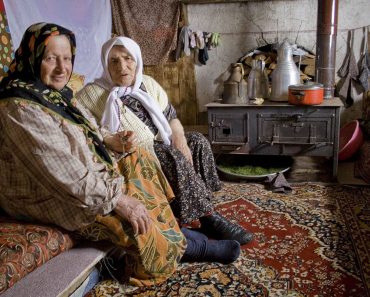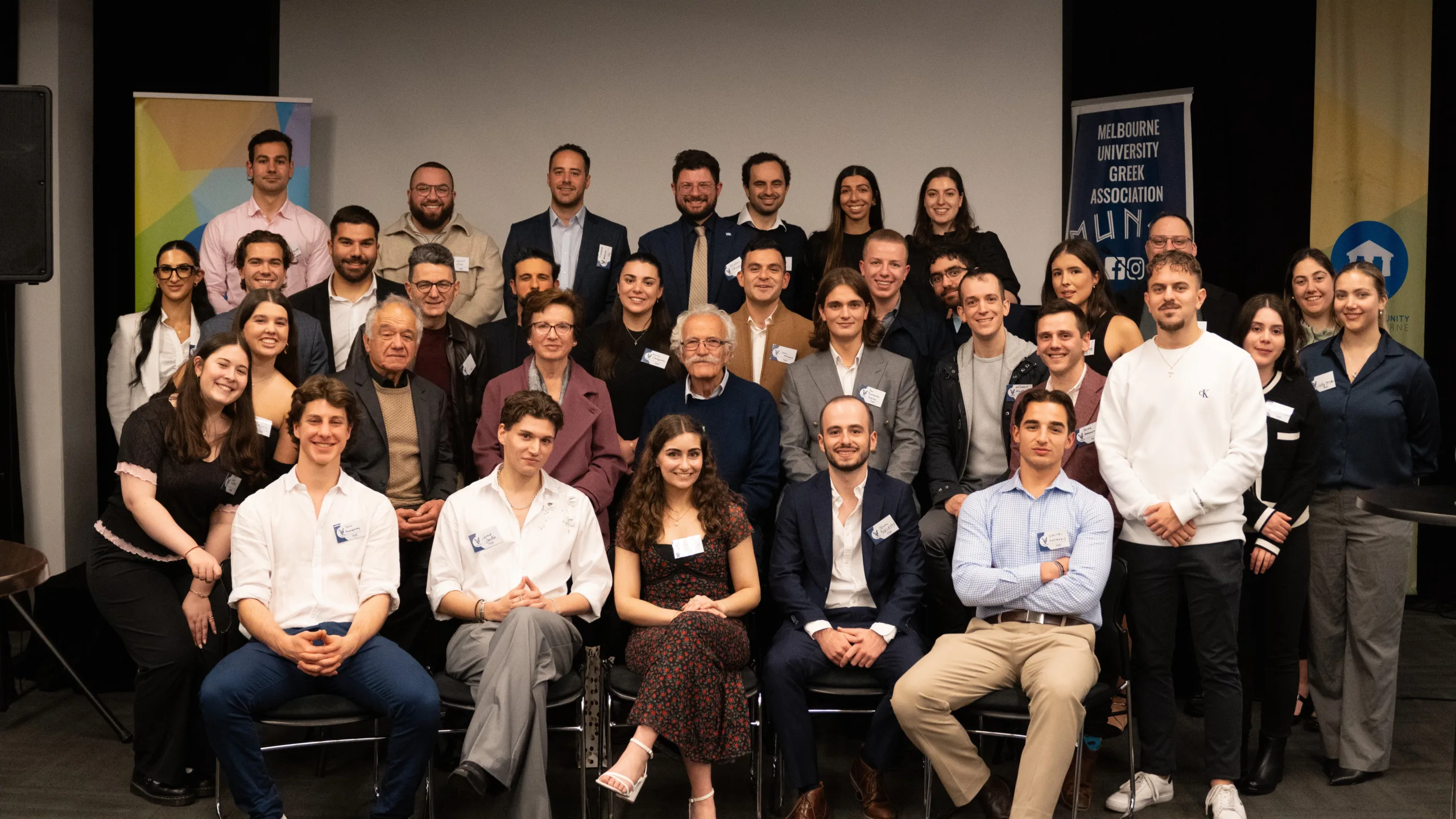NEW YORK – Author Anastasios Karababas presented his new book ‘In the Footsteps of the Jews of Greece: From Ancient Times to the Present Day’ in an informative and moving event at the historic Kehila Kedosha Janina Synagogue and Museum (KKJ) on New York’s Lower East Side on September 15.
Karababas is a French-Greek historian, teacher and political analyst. He was a guide and lecturer at the Shoah Memorial in Paris from 2014 to 2020. In 2011, he began his research on the Jews of Greece, and his latest book is based on historical archives from Europe, Israel, and the U.S. His research mainly focuses on genocides of the 20th century, the preservation of memory, and its transmission to younger generations.

His pioneering book, first published in Greek in 2022, in French in 2023, and published in English in 2024, translated by Lina M. Liederman, presents a unique, detailed overview of the history of Greek Jews from antiquity to the present day, including the period of the Holocaust when nearly 90% of the community was annihilated. Beyond this historical landscape, the book also highlights the contributions of Greek Jews to the economic, cultural, intellectual and political life of the country, and reveals the golden times and the darkest days in the coexistence between Jews and Christians in Greece.

With a prologue by Yiannis Boutaris, the former mayor of Thessaloniki, the book, a valuable resource of information, includes testimonies from survivors, historic photos, detailed notes, and an extensive bibliography. For anyone interested in the history of Greece, it is a must read.
Andrew Marcus, KKJ board member and organizer of events, gave the welcoming remarks, sharing greetings and congratulations on Karababas’ book from Museum Director Marcia Haddad Ikonomopoulos who could not attend that day. Marcus noted that the community is “almost 100 years in this synagogue building, but over 100 years in America, and about 2,000 or so going back in Greece, as you’ll hear, in the Romaniote community.”

He then introduced KKJ’s new Community Engagement Fellow, Theo Canter, who speaks English, Greek, Hebrew, French, and Arabic, and will be spearheading new initiatives, programs, and classes at KKJ to better engage the Greek Jewish community. Canter spent the past year in Greece as a Fulbright Fellow, teaching English and studying with the Jewish community in Athens of which Karababas is a member. Canter then introduced Karababas, noting his many accomplishments as a scholar and author.
Karababas thanked the community, pointing out that “it is a great honor to have the opportunity to stand in front of you and to present this rich history, the history of the Jews of Greece.”
During the presentation, Karababas shared key points about the long history of the Jews of Greece, beginning with the earliest traces of the Jewish presence, recorded in inscriptions and in archaeological evidence from ancient times. Slides including historic photos and maps highlighted the multifaceted communities that thrived throughout Greece until the devastation of the Holocaust. Karababas noted that the first Jews settled in Greece in the sixth century BC, the Romaniotes, based mostly in Ioannina, are the oldest group while later on the Sephardim- Jews from the Iberian Peninsula, Askenazi Jews from Eastern Europe, and Italian Jews also settled in Greece. He mentioned famous Greek Jews, including Moses Allatini who led industrial development in Thessaloniki in the mid-19th century, the war hero Colonel Mordechai Frizis who lost his life in the Greco-Italian War in 1940, and rebetiko singer Roza Eskenazi.
Karababas also offered insights into the Holocaust in Greece, noting that there were 31 communities recognized by the Greek government and over 75,000 Jews in Greece, 56,000 of those living in Thessaloniki before the war, but the Nazis’ Final Solution decimated the once-thriving communities. He noted the efforts of Archbishop Damaskinos, Bishop Chrysostomos, and Zakynthos Mayor Loukas Karrer, who are among the 364 Greeks listed by Yad Vashem as Righteous Among the Nations for helping Jews during the war.

Karababas pointed out that the history books in Greece when he was in school did not mention the Holocaust and only in recent years has the subject become a part of the school curriculum. He said that anti-Semitism in Greece is superficial today and based on ignorance, adding that as the education level increases, anti-Semitism tends to decrease.
Today, there are about 5,000 Jews in Greece and nine official Jewish communities with the largest in Athens, followed by Thessaloniki, and Larissa.
Following the presentation, Karababas answered questions from the audience and signed copies of his book which were available for purchase. Attendees also enjoyed refreshments at the event.
KKJ President Marvin Marcus was among those present.
‘In the Footsteps of the Jews of Greece: From Ancient Times to the Present Day’ by Anastasios Karababas is available online.







